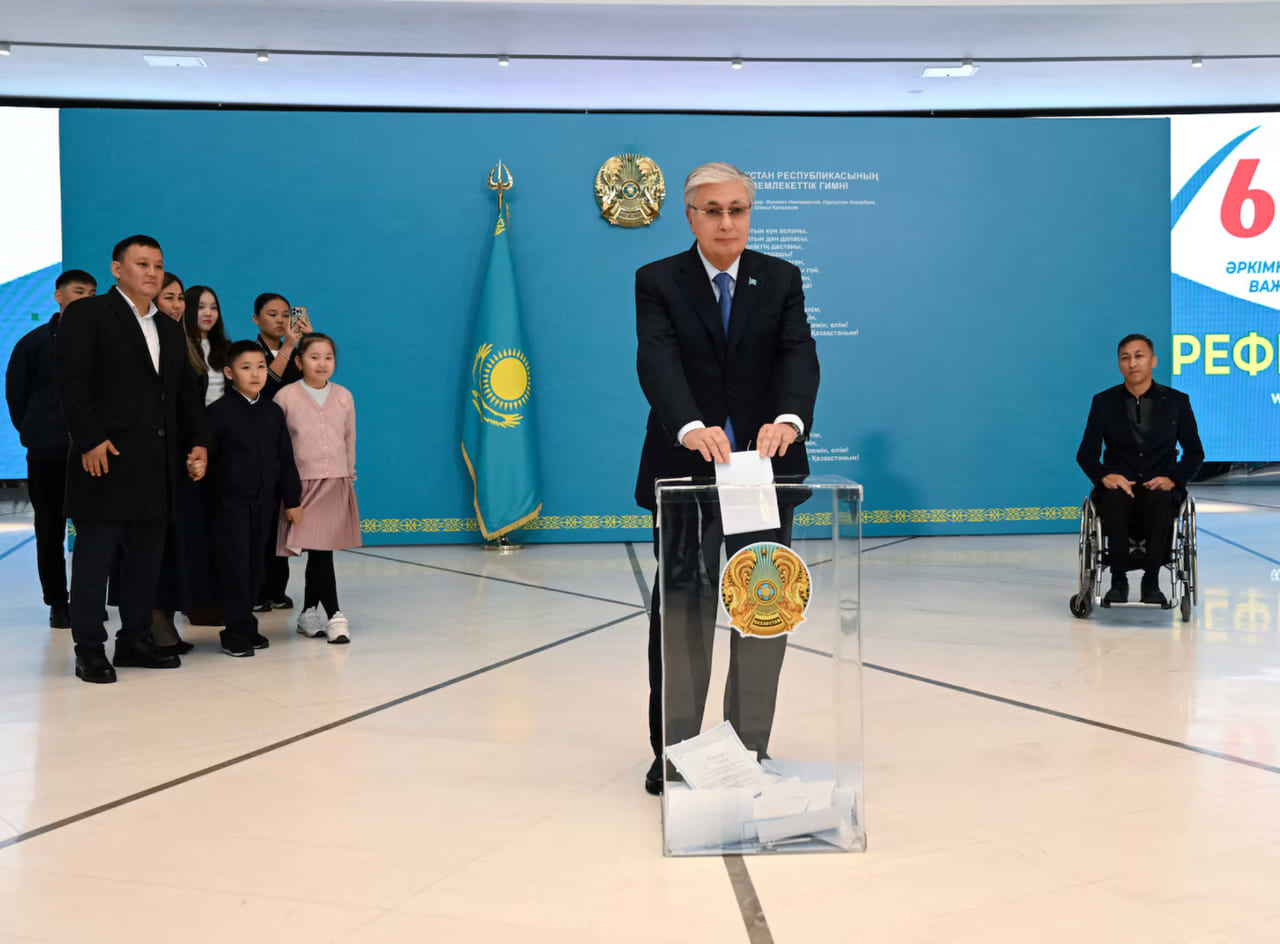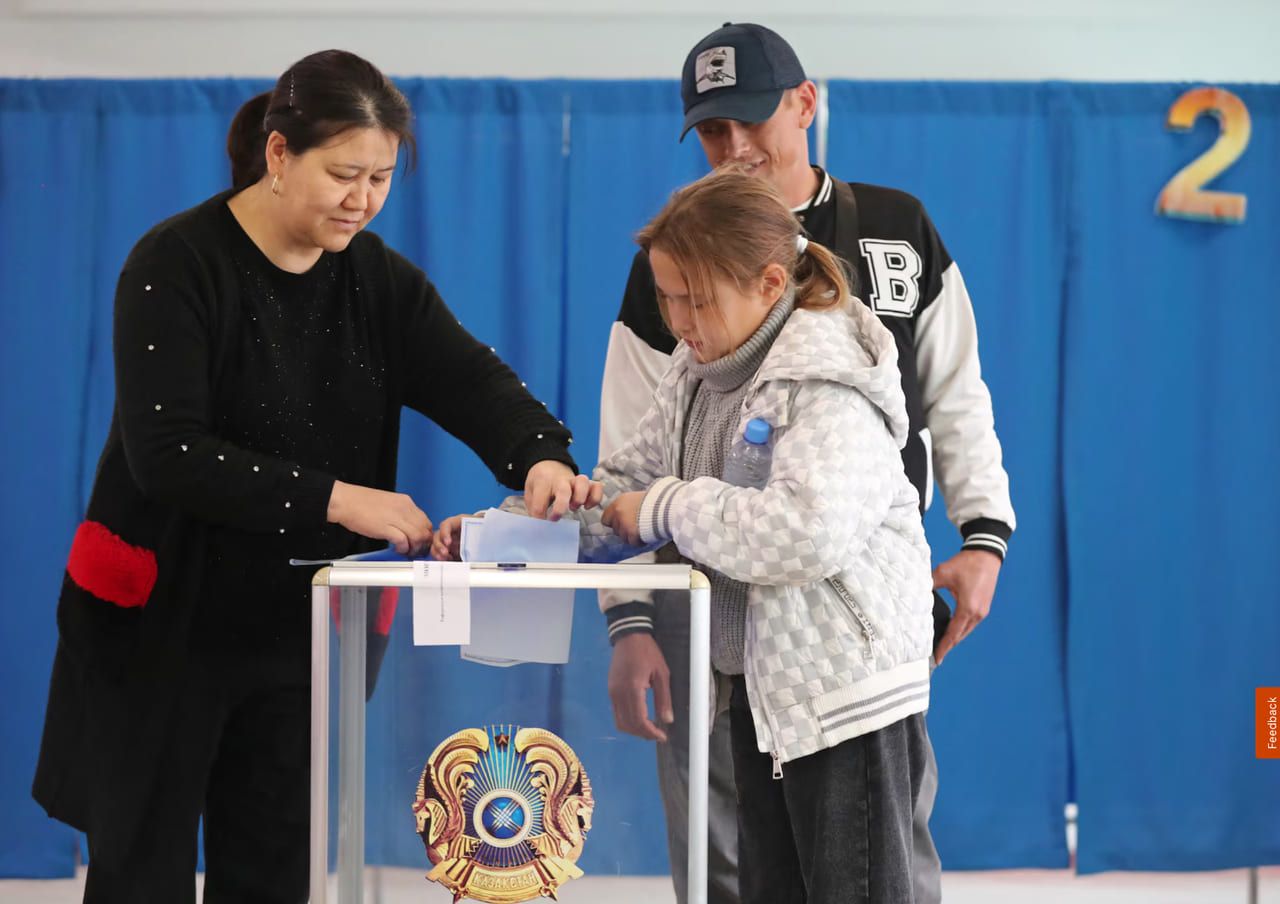Kazakhstan held a referendum on October 6, 2024, to decide whether to proceed with the construction of its first nuclear power plant. The initiative, championed by President Kassym-Jomart Tokayev's government, aims to transition the Central Asian nation away from polluting coal-fired power generation.

By the time polling stations closed at 8 p.m. local time (1500 GMT), nearly 64% of registered voters had cast their ballots, validating the referendum. The Central Election Commission plans to announce preliminary results on Monday.
Approximately 7.8mn of the 12.24mn eligible voters casted their ballots, with Kyzylorda region recording the highest turnout at 82.48% and Almaty the lowest at 25.39%.
The Commission is set to announce preliminary results on October 7, but a local pollster, SOCIS-A, reported that an exit poll of approximately 284,000 voters indicated that 69.8% supported the plan shortly after the voting concluded.
Public sentiment surrounding the proposal is mixed. Prominent blogger Vadim Boreiko expressed skepticism, suggesting that the decision had already been made by the Tokayev administration.
"The people of Kazakhstan are being invited to polling stations as 'notaries' to authenticate this decision with their votes," he stated.
In the village of Ulken, designated as the potential site for the nuclear facility on the shores of Lake Balkash, some residents are optimistic about job creation. However, others are concerned about the environmental impact on the lake's water quality.
"I support the power plant," said Dametken Shulgeyeva, a local resident for over 20 years. "This is our future."
Kazakhstan, which has a population of approximately 20mn, primarily relies on coal for electricity, supplemented by hydroelectric sources and an expanding renewable energy sector. Despite possessing significant natural gas reserves, the nation also imports electricity, mainly from Russia, as outdated infrastructure struggles to meet growing domestic demand.

The government argues that nuclear energy is essential for maintaining a reliable power supply alongside renewable sources like solar and wind energy.
"In order not to remain on the sidelines of global progress, we must use our competitive advantages," Tokayev stated before the vote.
Although Kazakhstan is one of the world's leading uranium producers, it does not currently enrich uranium for fuel. The estimated cost of the nuclear power plant is between $10bn and $12bn, with the government relying on contractors to secure financing.
Critics contend that the same energy goals could be achieved with less polluting gas-fired plants, which present fewer risks than nuclear energy. The historical context also weighs heavily on public perception; Kazakhstan was part of the Soviet Union during the Chornobyl disaster in 1986, and the legacy of Soviet nuclear testing has left many Kazakhs wary of nuclear projects.
In a statement after casting his vote in the capital, Astana, Tokayev emphasized that he did not favor any specific country or company for the contract.
"My personal vision is that an international consortium needs to work in Kazakhstan, comprised of global companies with the most advanced technologies," he explained.
The Ministry of Energy identified four potential contenders for the nuclear project in 2023: China's CNNC, South Korea's KHNP, France's EDF, and Russia's Rosatom. The project will also be subject to oversight from international bodies like the International Atomic Energy Agency (IAEA).
Follow Daryo's official Instagram and Twitter pages to keep current on world news.
Comments (0)